On 15 Nov 1964, Bernard Frank died, an American forester and conservationist who was a co-founder of the Wilderness Society. During three decades with the U.S. Forest Service, his interests included soil conservation and watershed management. He wrote two books and over a hundred articles concerning water, land, people and forests. One of these was ‘Our Need For Water’ in the USDA Yearbook of Agriculture (1955). Its subtitle was 'The Story of Water as the Story of Man', and he began “You could write the story of man's growth in terms of his epic concerns with water.” (more)

On 15 Nov 1738, William Herschel was born, German-born British astronomer, who founded sidereal astronomy for the systematic observation of the heavens. Today's book pick is: William Herschel (British Men of Science), by Anugs Armitage, who writes for the reader that is not familiar with astronomical terms or techniques, and in general gives very clear descriptions of the phenomena he is discussing. Herschel's life progressed from being born in Germany, to coming to England for work as a musician, then stumbling into astronomy, and dragging his sister Caroline along, who also became a diligent astronomer herself. There are lots of details on how the two worked together and several of Caroline's own projects are described. It's written in a highly readable style and includes photos of museum artifacts that Herschel used in his work that I had not seen before. Fascinating stuff.
It is available from Amazon, typically about Used from $5.00. (As of earlier time of writing - subject to change.)
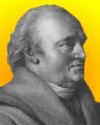 | The phenomena of nature, especially those that fall under the inspection of the astronomer, are to be viewed, not only with the usual attention to facts as they occur, but with the eye of reason and experience. |
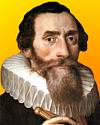 | Temporis filia veritas; cui me obstetricari non pudet. Truth is the daughter of time, and I feel no shame in being her midwife. |
 | When experimental results are found to be in conflict with those of an earlier investigator, the matter is often taken too easily and disposed of for an instance by pointing out a possible source of error in the experiments of the predessessor, but without enquiring whether the error, if present, would be quantitatively sufficient to explain the discrepancy. I think that disagreement with former results should never be taken easily, but every effort should be made to find a true explanation. This can be done in many more cases than it actually is; and as a result, it can be done more easily by the man “on the spot” who is already familiar with the essential details. But it may require a great deal of imagination, and very often it will require supplementary experiments. |
| Before you look at today's web page, see if you can answer some of these questions about the events that happened on this day. Some of the names are very familiar. Others will likely stump you. Tickle your curiosity with these questions, then check your answers on today's web page. | |
| Births | |
 | Sir William (Frederick) Herschel, born 15 Nov 1738, was a German-born British astronomer, the founder of sidereal astronomy for the systematic observation of the heavens. His systematic study of the sky let him to the discovery of a new planet. Which planet did he discover? |
 | On 15 Nov 1874, August Krogh was born, a Danish physiologist and zoologist who received the Nobel Prize for Physiology or Medicine in 1920. He investigated certain physiological changes associated with muscle activity. What physiological change did Krough identify in his Nobel Prize-winning work? |
| Deaths | |
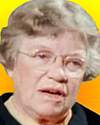 | An American anthropologist (1901-1978) was best-known for her studies of the nonliterate peoples of Oceania, especially with regard to various aspects of comparative child psychology, oceanic ethnology, cooperation and competition among primitive peoples, and cross-cultural communications. Her book, Coming of Age in Samoa, was—and remains—a best-seller. Can you name this scientist? |
 | Johannes Kepler (1571-1630) was a German astronomer who discovered three major laws of planetary motion. What simple idea is given in his first law of planetary motion? |
| Events | |
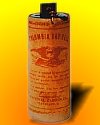 | On 15 Nov of a certain year, a German scientist, Dr. Carl Gassner, was issued a U.S. patent (No. 373,064), the first in the U.S. for a “dry” cell, which used zinc as its primary ingredient. He encased the cell chemicals in a sealed zinc container. Gassner's battery was much like the carbon-zinc, general-purpose batteries disappearing from the market today. Within one decade later, the National Carbide Company, later Union Carbide and Eveready, produced the first consumer dry cell battery. In what decade was Gassner's U.S. dry-cell patent issued? |
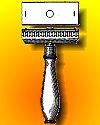 | On 15 Nov 1904, King Camp Gillette was issued a U.S. patent for his invention of a safety razor with a new feature. He had worked for a number of years developing his idea, but once refined, he captured the market. What was Gillette's razor improvement in his 1904 patent? |
Fast answers for the previous newsletter for November 14: decade containing the day 1965 • insulin, diabetes • uniformitarianism • microscopic particles in the condensation of atmospheric water vapour in clouds and fogs • fullerenes or buckyballs • horses.
 If you enjoy this newsletter, the website, or wish to offer encouragement or ideas, please send feedback by using your mail reader Reply button.
If you enjoy this newsletter, the website, or wish to offer encouragement or ideas, please send feedback by using your mail reader Reply button. Your click on a Facebook, StumbleUpon, or other social button on the site webpages is also a welcome sign of appreciation. Thank you for using them.
© This newsletter is copyright 2020 by todayinsci.com. Please respect the Webmaster's wishes and do not put copies online of the Newsletter — or any Today in Science History webpage. (If you already have done so, please remove them. Thank you.) Offline use in education is encouraged such as a printout on a bulletin board, or projected for classroom viewing. Online, descriptive links to our pages are welcomed, as these will provide a reader with the most recent revisions, additions and/or corrections of a webpage. For any other copyright questions, please contact the Webmaster by using your mail reader Reply button.
--
If you do not want to receive any more newsletters, Unsubscribe
To update your preferences and to unsubscribe visit this link
Executive Real Estate Business Class
-
"It was like a man with wings. It wasn't like anything you'd see on TV or in a monster movie." ...
About the publisher
Search This Blog
Blog Archive
-
▼
2020
(1542)
-
▼
November
(164)
- Last day to save! Take advantage of Black Friday d...
- On This Day for November 30 - Independence of Barb...
- Newsletter for Monday 30 November.
- November 30: Cnut the Great, the 1st State to Abol...
- FAMILY: Happiness in a stressful season
- Medieval monarchs | WW1 quiz | Marlborough pie recipe
- On This Day for November 29 - United Nations resol...
- Newsletter for Sunday 29 November.
- November 29: Edison's Phonograph, Schrödinger's Ca...
- The Compass: Italy
- See the past through a different lens with Nat Geo...
- On This Day for November 28 - Opening of Tehrān Co...
- Newsletter for Saturday 28 November.
- November 28: Exploration, Invention and a Day of F...
- PHOTOGRAPHY: How adversity inspired discovery for ...
- The gift of curiosity lasts a lifetime. Give Nat G...
- Very Weird — And Very Real — Facts About The Victo...
- Black Friday Deals: Save 50% on a Britannica Membe...
- Black Friday Savings at the HISTORY Store
- On This Day for November 27 - Nobel Prizes establi...
- Newsletter for Friday 27 November.
- November 27: The Model Parliament, the 1st Native ...
- ANIMALS: The pets I’m thankful for
- A Very Special Thanksgiving Edition Of Our Newsletter
- On This Day for November 26 - Premiere of Casablan...
- Newsletter for Thursday 26 November.
- YOUR WEEKLY ESCAPE: They live in a legendary under...
- November 26: 1st National Thanksgiving, Alice in W...
- SCIENCE: The prehistoric truth about turkeys
- UPDATED: Every Membership Now 50% Off!
- Every Membership Now 50% Off!
- Demystified: Is the Ozone Layer Finally Healing It...
- On This Day for November 25 - Japanese military ba...
- Newsletter for Wednesday 25 November.
- November 25: Dynamite and The Mousetrap
- TRAVEL: Keeping your family safe over the holidays
- Meet The Real-Life "Dexter" — Serial Killer Of Mur...
- On This Day for November 24 - Dutch discovery of T...
- Newsletter for Tuesday 24 November.
- November 24: 1st Transit of Venus Observed, Van Di...
- HISTORY: The faces of COVID-19’s toll
- New This Week on History News Network
- On This Day for November 23 - Ley Juárez passed, I...
- Newsletter for Monday 23 November.
- November 23: On This Day in History
- FAMILY: Keeping the holidays familiar for your kids
- The many faces of Anne Boleyn | Take our Tudors qu...
- On This Day for November 22 - U.S. President John ...
- Newsletter for Sunday 22 November.
- November 22: Vasco da Gama Rounds the Cape and JFK...
- The Compass: Hawaii
- On This Day for November 21 - Signing of Mayflower...
- Newsletter for Saturday 21 November.
- November 21: The Mayflower Compact, a Jewish state...
- CORONAVIRUS UPDATE: 200,000 new cases in a single day
- PHOTOGRAPHY: Switching tactics to chronicle the wo...
- How The Kennedy Curse Has Tormented America's Firs...
- On This Day for November 20 - Mexican Revolution l...
- The Roundup Top Ten for November 20, 2020
- Newsletter for Friday 20 November.
- November 20: Uyghurs Conquer China, the Napoleonic...
- ANIMALS: The deadly thing about snakes
- Give your kids a love of learning with Nat Geo Kid...
- #1 Gift for Families this Holiday - On Sale Now!
- On This Day for November 19 - Anwar Sadat's visit ...
- Newsletter for Thursday 19 November.
- November 19: "Four Score and Seven Years Ago..."
- YOUR WEEKLY ESCAPE: Not all of the dinosaurs died
- SCIENCE: Can we make North America’s greatest reso...
- The Latest News from History News Network
- On This Day for November 18 - Jonestown massacre, ...
- Newsletter for Wednesday 18 November.
- November 18: St. Peter's Basilica is Consecrated a...
- TRAVEL: Best of the World 2021
- Black Friday Early Access! 50% off Holiday Bundles...
- Photographer Captures the Impacts of Climate Chang...
- On This Day for November 17 - Arnold Schwarzenegge...
- Newsletter for Tuesday 17 November.
- November 17: On This Day in History
- HISTORY: Thanksgiving in tough times
- New This Week on History News Network
- On This Day for November 16 - Election of Bhutto a...
- Newsletter for Monday 16 November.
- November 16: Francisco Pizarro Ambushes Atahualpa,...
- FAMILY: Keeping kids kind during this stressful time
- The Crown S4 | Henry VIII's seventh wife | Vikings...
- On This Day for November 15 - Palestinian statehoo...
- Newsletter for Sunday 15 November.
- November 15: The Scramble for Africa and the Vietn...
- The Compass: Peru
- On This Day for November 14 - Eritrea made a provi...
- Newsletter for Saturday 14 November.
- CORONAVIRUS UPDATE: The U.S. enters uncharted terr...
- November 14: Kirch's Comet, Einstein's Theory of L...
- PHOTOGRAPHY: In the land of Arctic dreams
- The Unhinged Soldier Who Avenged Lincoln's Assassi...
- The Roundup Top Ten for November 13, 2020
- On This Day for November 13 - Terrorist attacks in...
- Newsletter for Friday 13 November.
- ANIMALS: Images to surprise and delight during thi...
-
▼
November
(164)
-
Blogroll
-
About
HistoryFact










0 comments:
Post a Comment